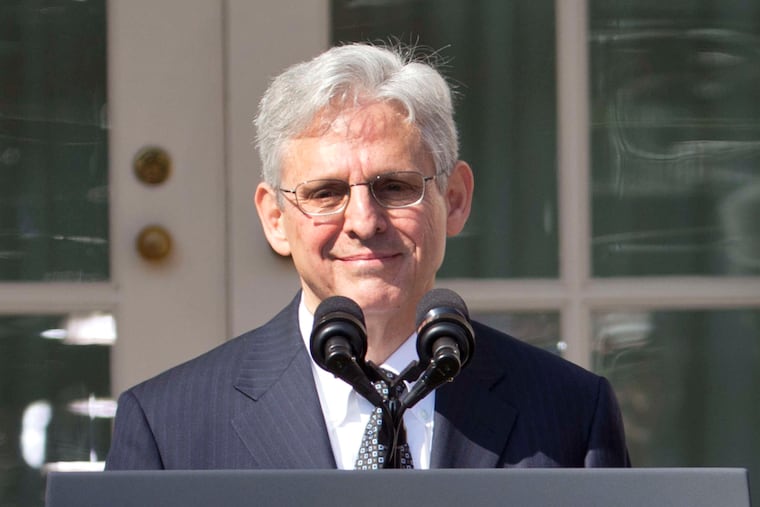History contradicts party-line animosity
It was the presidential election year of 1992 and Tim Lewis, then a young federal court judge in Pittsburgh, was watching a televised debate between Sen. Arlen Specter (R., Pa.) and his challenger, Lynn Yeakel.

It was the presidential election year of 1992 and Tim Lewis, then a young federal court judge in Pittsburgh, was watching a televised debate between Sen. Arlen Specter (R., Pa.) and his challenger, Lynn Yeakel.
Yeakel went after Specter for the GOP's failure to nominate African Americans to the federal bench. But Specter had a ready answer.
"Specter said, 'Well that is not true. There is a young African American judge in Pittsburgh who we are going to put on the Third Circuit,' " Lewis recalled. "I was lying in bed watching this televised debate. I remember sitting up and saying, 'no.' "
Lewis knew that Specter was talking about him because Specter had approached him with the idea of serving on the Third Circuit in Philadelphia, and Lewis turned him down. He was happy as a trial judge and had no interest in the cloistered life of the appellate panel.
But Specter persisted.
Lewis eventually changed his mind and the Senate, then controlled by Democrats, unanimously confirmed him a short time later, the nominee of the opposing party. Lewis, now an arbitrator and appellate lawyer with Center City's Schnader Harrison, Segal & Lewis, says the experience convinced him that political parties can bridge partisan divides and that his experience might point the way forward for the U.S. Supreme Court nomination of Merrick Garland. His nomination by President Obama, a Democrat, is stalled in the Republican-controlled Senate, whose leaders say they will postpone action until after the election.
The key is to respect tradition and trust that personal ties take precedence over party affiliation, said Lewis, who served on the appeals court from 1992 to 1999. "Republican senators are definitely handicapping an institution of government from working properly," he said. "It doesn't have to be this way."
So dear is the subject to Lewis that he regularly writes and speaks on what he says is the nation's dysfunctional system for selecting federal judges. His critique boils down to the idea that partisanship has paralyzed a process that has been apolitical for most of the nation's history.
To be sure, even in the good old days there were exceptions. The 1916 confirmation process for Louis Brandeis, the first Jewish person to serve on the high court and one of its most distinguished jurists, lasted months and was buffeted by anti-Semitic forces and corporate interests that opposed Brandeis' progressive ideals, and the president who nominated him, Woodrow Wilson.
But Lewis says today's paralysis is uniquely damaging.
Investigators comb through the background of nominees, searching everything from divorce records to video rentals and gym membership. He notes that even the relatively uncontroversial nomination of Supreme Court Justice Stephen Breyer by President Clinton was subjected to a seven-month confirmation during which 300 federal judges were interviewed to assess his fitness.
"What really stands out most is the level of animosity and bitterness that accompanies most nomination battles," he said.
That's why Lewis believes that his 1992 confirmation provides something of a road map. Though George H.W. Bush nominated Lewis in the heat of a presidential campaign, both parties abstained from making it a political football. Democrats controlled the Senate, but Specter and then-Sen. Joe Biden (D., Del.) who chaired the Judiciary Committee, resolved from the outset to keep partisan politics at bay. It helped that Biden and Specter, though from different parties, had a long and cordial relationship - they regularly commuted back and forth to Washington together on the Amtrak Acela.
Lewis' confirmation hearing on Oct. 8, 1992, lasted all of 30 minutes. Questions from members were nonconfrontational. Typical was a question by Sen. Strom Thurmond, a Republican conservative from the South (South Carolina). He only wanted to know whether Lewis would be fair.
Two weeks later, in the final weeks of the presidential election, the Senate confirmed Lewis unanimously in its final vote before going into recess. Biden called Lewis with the news from the Acela as he traveled home to Wilmington.
215-854-5957 @cmondics